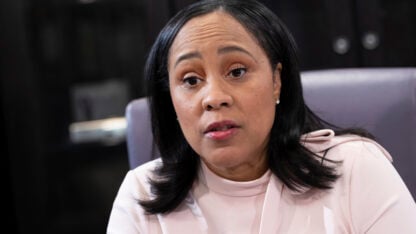Acworth Republican Proposes First Bill Aimed At Raising Transportation Funds

A Republican state lawmaker from Acworth has introduced the year’s first bill aimed at tackling Georgia’s underfunded transportation network. Rep. Ed Setzler wants to gradually lower the state income tax while raising the amount drivers pay at the pump.
“I think we recognize that we have a statewide need that requires a statewide solution,” said Setzler.
He says drivers ─ through the excise tax on fuel ─ should bear more of the burden to maintain the state’s roads and bridges.
“It’s very important to recognize people from out-of-state passing through Georgia pay our motor fuel tax, but it’s only Georgians that pay the income tax so I think a modest shift is the direction we need to move as a state to make sure the resources are there for infrastructure,” said Setzler.
House Bill 60, found here, includes a six-year phase-in that would ultimately result in more than a $1 billion dedicated to roads and bridges. The state income tax would eventually drop from six percent to 5.5 percent, and the excise tax on fuel would rise from 7.5 cents per gallon to 22.5 cents per gallon. In addition, the excise tax on fuel for the first time would be tied to inflation. The bill does not include any dedicated funds for transit.
State leaders, including Gov. Nathan Deal, generally agree that more transportation dollars are needed. A legislative committee recently laid out a number of revenue generating options, including a new statewide sales tax.
Deal and other GOP leaders have yet to back a specific plan.
Kaleb McMichen, a spokesman for House Speaker David Ralston, said he wasn’t familiar enough with Setzler’s bill to comment. McMichen did say Ralston is standing by for a separate proposal from the House transportation chair, which is expected in the coming weeks.
“There’s going to be a lively discussion and debate. It’s part of the process,” said McMichen. “What I don’t think you’re going to see is a dictatorial stance of it’s-this-way-or-no-way. It’s going to be a process where there’s give and take and compromise because it’s going to affect so much of the state and its future.”
9(MDAxODM0MDY4MDEyMTY4NDA3MzI3YjkzMw004))








